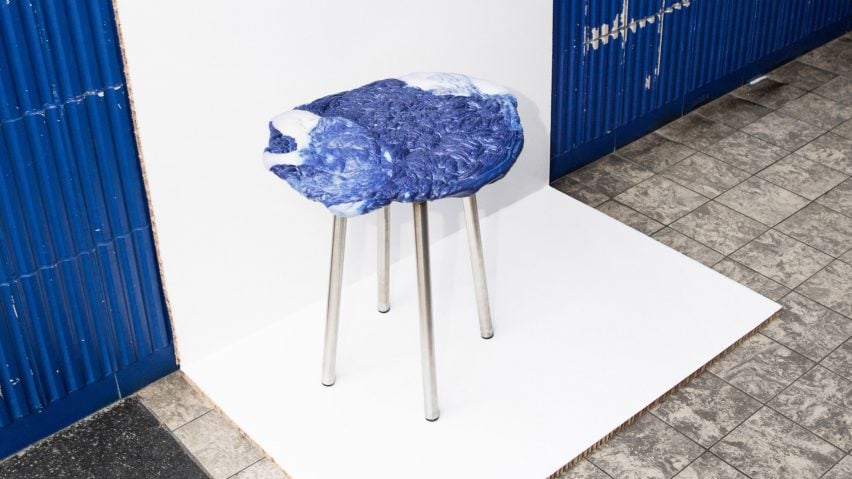
Scrap Life Project transforms waste plastic from injection-moulding process into stools
A group of German designers have created stool seats from oddly shaped pieces of recycled plastic produced at an injection-moulding factory.
Presented last week at the Ambiente trade show in Frankfurt, Germany, the plastic-topped stools were made as part of an initiative dubbed the Scrap Life Project.
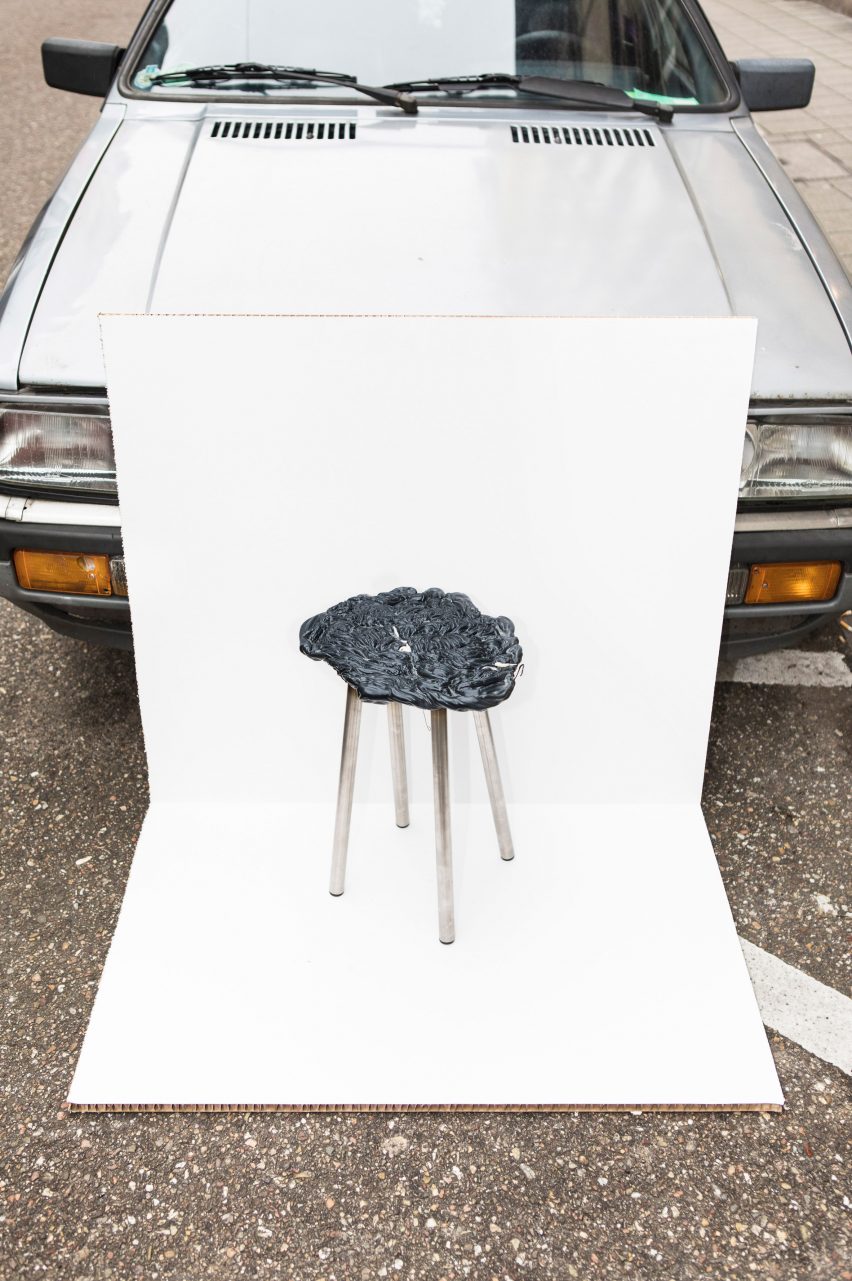
The project has been developed over the past year by Grischa Erbe and Moritz Jähde of interdisciplinary design-studio Spreng & Sonntag, and Clemens Lauer and Max Guderian of Studio Stabil.
Designer Hans Maier-Aichen, who serves as professor of product design at the Staatliche Hochschule für Gestaltung in Karlsruhe, has overseen the process.
The four designers began the project during a field trip to northern Italy in 2013, where they visited a large injection-moulding factory specialising in plastic chairs.
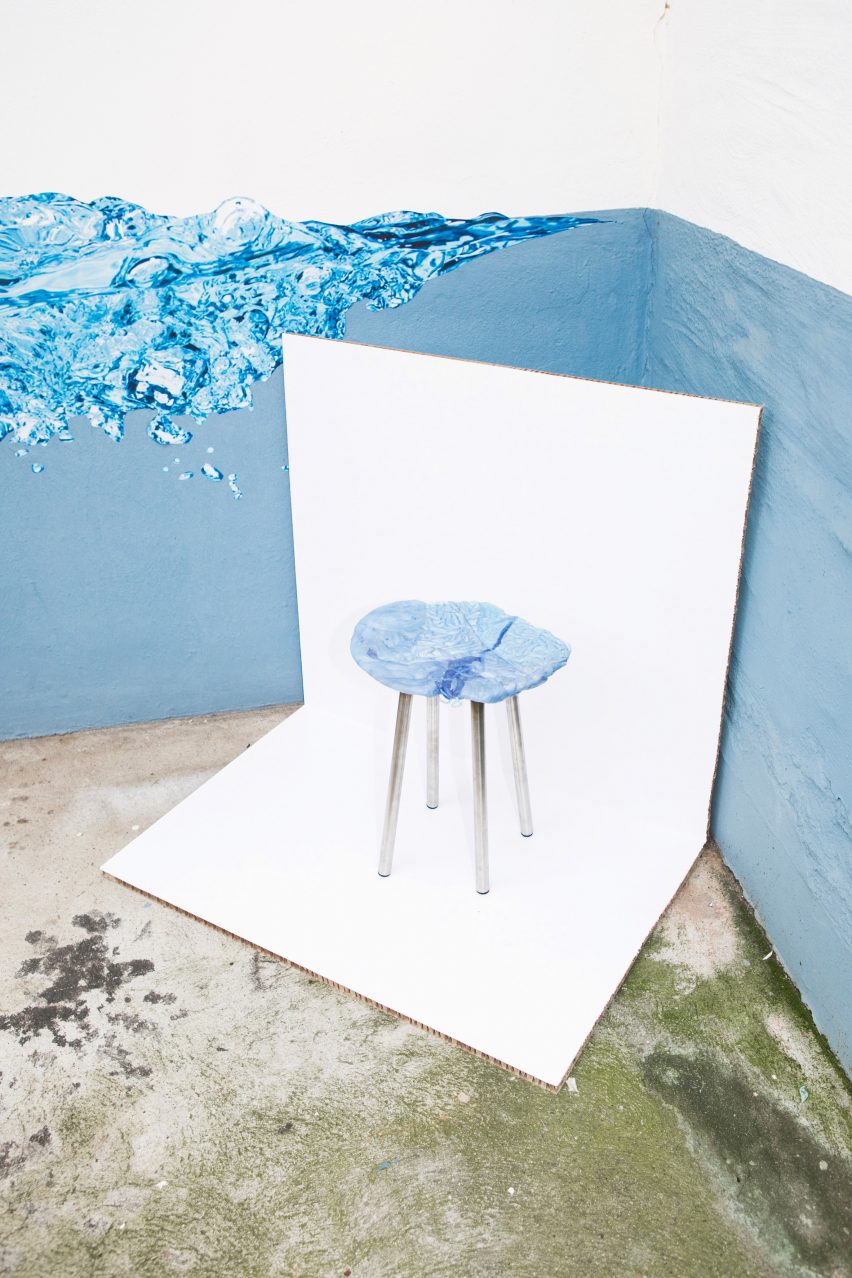
They saw that during the injection-moulding process, whenever a colour or material is changed, raw plastic escapes from the mould onto the floor – creating a pile of colourful melted plastic that solidifies into a plate shape.
After learning that all of the plastic plates were being discarded in the factory's rubbish bins, the designers decided to take some back to Germany where they hoped to put them to use.
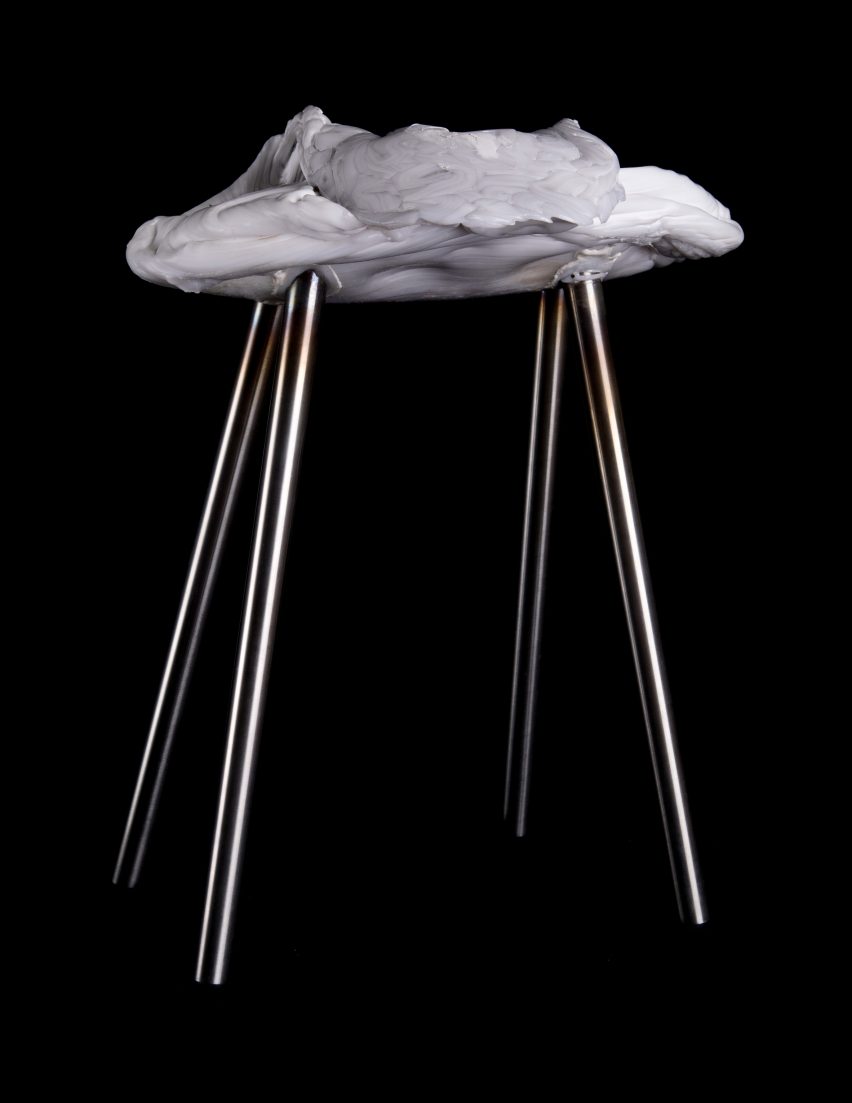
"These plastic plates are so foreign to their place of birth, there is not even a name for this side product which is being produced in large numbers every day," said the designers. "Due to the random mix of material, those plates never had another future than the costly process of burning."
The designers devised a method for pressing heated steel tubes into the underside of the plates to create a simple stool.
Soon after, they returned to the factory in Italy, and – with the permission of the factory owner – returned home with a bus full of plates ready to start mass production.
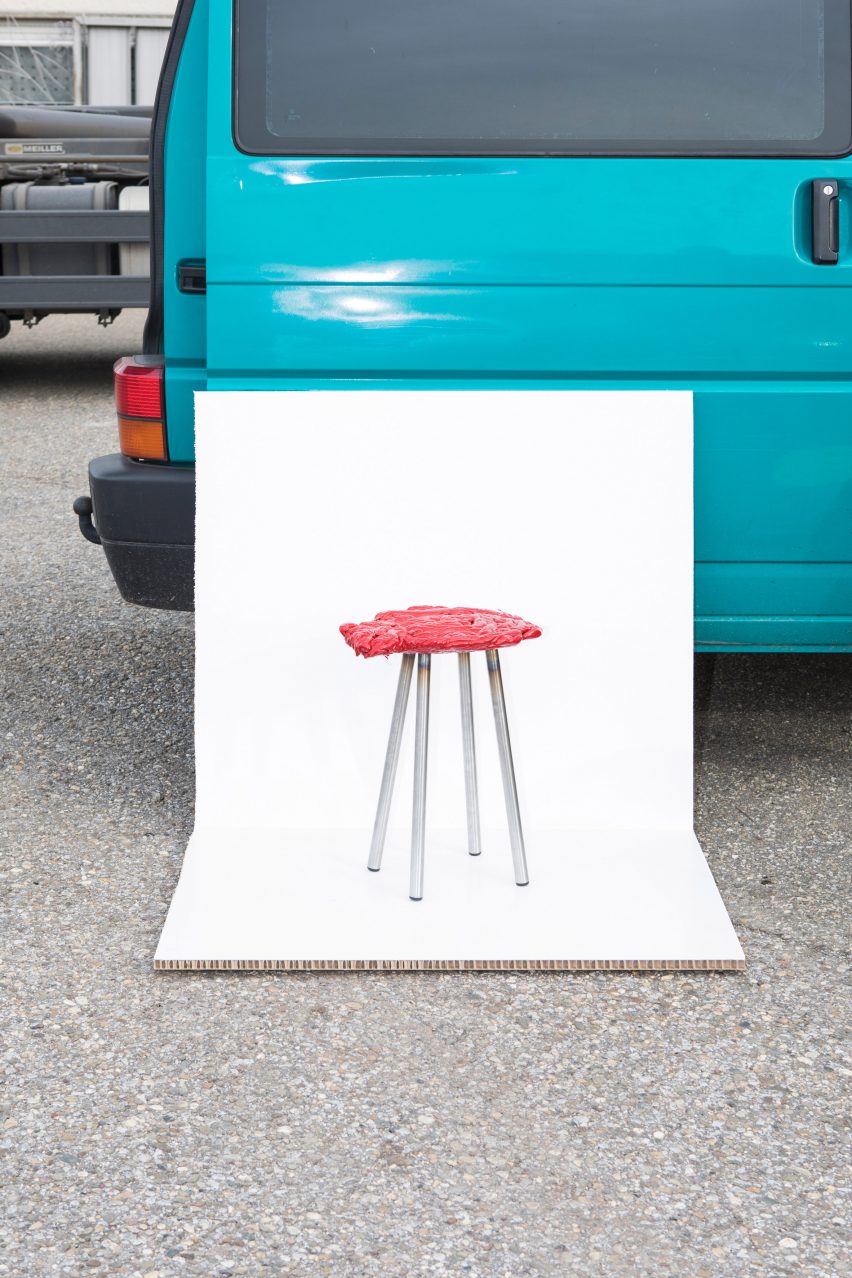
"Every stool is a completely unique object with its individual shape and character," said the designers.
Designers are increasingly making use of recycled plastic. During an interview with Dezeen, Bob Vos and Alessandro Iadarola, founders of sustainable design brand Polimeer, said that repurposed plastics will "soon be the only choice", as we are running out of raw materials and their extraction is killing the earth.
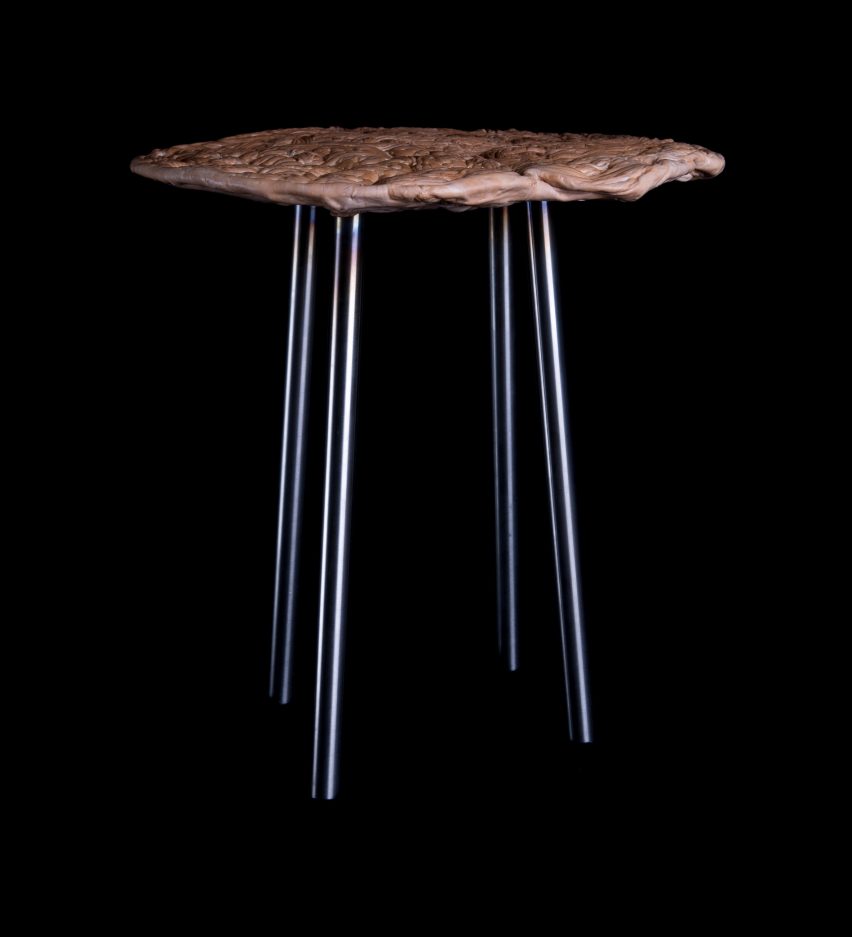
Other designers working with alternative plastics include Antwerp-based brand Ecobirdy, which uses recycled plastic toys to create a range colourful furniture for kids, and Design Academy Eindhoven graduate Shahar Livne, who has created a clay-like material using discarded plastic that she envisions will become a valuable commodity in the future.